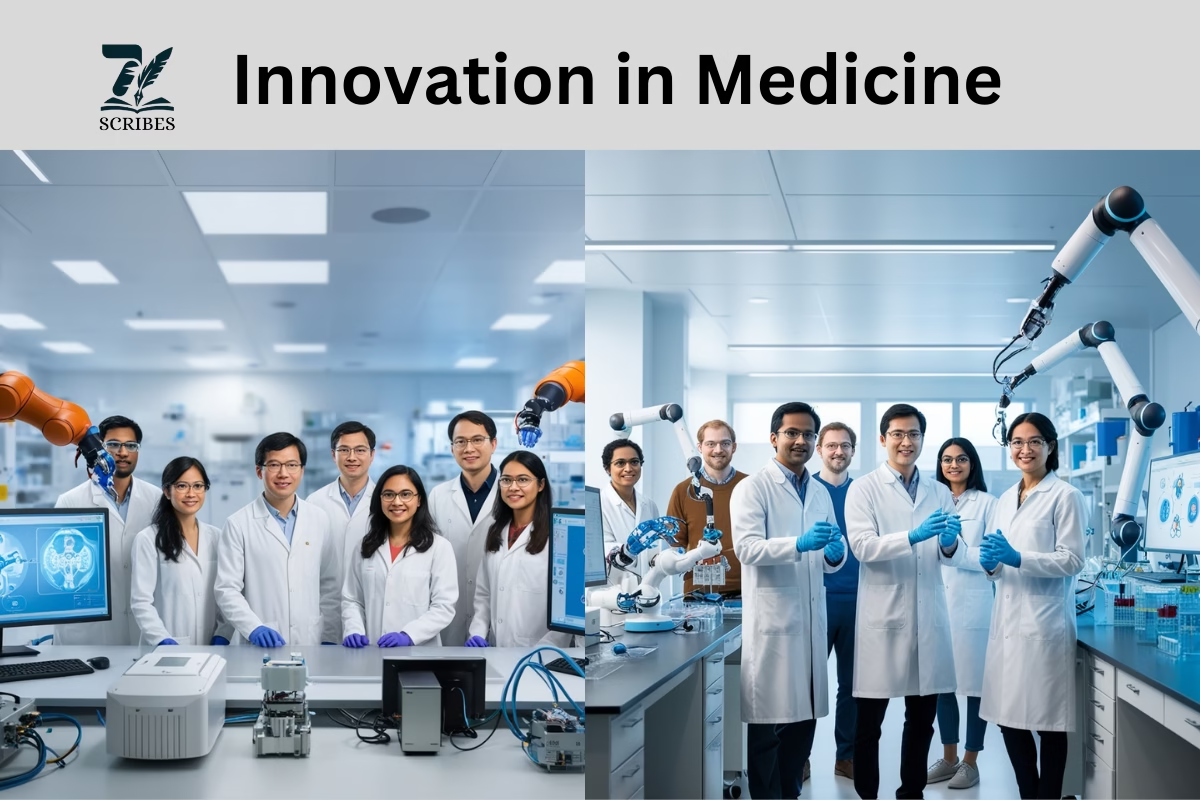Research is crucial at this time in the world. It is the foundation of future innovation. It is the foundation of knowledge. This applies to all fields, including science, business, technology, and the arts. It helps us to understand unknown things. It also provides solutions to complex problems. In this blog, we will explore the importance of research across various disciplines, and how it transforms imagination into reality.
What is Research?
It is a systematic investigation of facts or principles. It includes data collection, analysis, hypothesis testing, and conclusions to deepen the understanding of the specific subject. The process is either qualitative or quantitative depending on the question.
It is not just about answering existing questions but also about exploring new questions. Breakthroughs are often surprising when they happen. How small or large your project is, it can be a great way for you to progress in short- or long-term science projects.

Innovation Through Research
Innovation is one of the areas where it has an enormous impact. Consider the exponential technological progress in the last hundred years, from the internet to renewable energy. The only reason these breakthroughs became possible was that a team of researchers decided to devote effort to exploring new concept ideas or testing out their assumptions and seeing how far the scope lay with regards to what is (theoretically) possible.

Examples of Research Impact
- In Medicine: It has directly contributed to life-saving treatments and therapies. It is an effort made in clinical trials, genetic studies, and the development of pharmaceuticals to benefit human health and welfare. Without continuous research, progress in these areas would stall, and we’d miss opportunities to enhance our quality of life.

- In Business and Policy: As a result of dynamics worldwide, organizations, state authorities, and individuals often come across complicated issues every day that need resolving through well-structured approaches. It, as a tool, is very important when it comes to resolving issues because it offers information to make decisions. No matter the case spotting market shifts, researching buying choices, or looking into regional problems any issue can be managed thanks to it.For instance, consumer preference studies may show certain products are more appealing to customers than others, which will eventually assist the company in the design process. Government policies relating to issues such as social issues like poverty or global warming are all rooted in some form of it. It is at this stage that it, as well as data collection and its analysis, becomes most useful in coming up with solutions.
Different Research Approaches
This exploratory study may be conducted in approaches appropriate to the aims of the study. A few of the most typical types are:
Pure Research
The primary focus of pure it is to advance knowledge without immediate practical applications. This type seeks to understand the fundamental principles behind phenomena. For example, it could involve studying how subatomic particles interact or characterizing a new material.
Applied Research
It takes the findings from basic research and applies them to solve specific practical problems. It aims to provide solutions to real-world challenges, such as developing new drugs or improving production processes.
Quantitative Research
It focuses on collecting and analyzing data using mathematical and statistical techniques. It seeks to identify patterns, relationships, or trends within the data.
Challenges in Research
Although it is an essential aspect of advancement, it also needs to be understood and faced. One of the main difficulties is that the activities any researcher undertakes must be ethical. Researchers need to take responsibility and avoid any form of bias, distorted interpretation of data, or annoying the participants in any way. Many ameliorate it in particular sectors, thanks to ethical concepts and institutional review boards (IRBs).
Time, Resources, and the Realities of Research
It can be time-consuming and expensive, especially in fields like medicine and environmental science, where it can take years to see results. Challenges with funding and access to necessary equipment are also common.
Despite these challenges, I believe the benefits of it outweigh the difficulties. It can thrive even in adverse conditions when scholarly requirements are met and creative approaches are embraced, ultimately adding valuable knowledge to various disciplines.
Opportunities and Technological Advancements
It will continue to be a key driver of progress. Emerging technologies, such as artificial intelligence (AI), machine learning, and data mining, are revolutionizing how it is conducted. These tools enable the analysis of vast datasets almost instantly, unlocking new opportunities in fields like drug development and climate modeling.
In addition, the focus on global it partnerships is growing. Cultural, scientific, and geographic barriers are shrinking, allowing scientists to collaborate across borders to tackle critical challenges. Global it efforts can help address pressing issues such as climate change, clean energy, and pandemics. As such, it is essential to stay vigilant in the coming years.
Conclusion
In conclusion, it is not just a tool but also a driving force behind progress and innovation. By enabling us to explore the unknown, solve complex problems, and improve lives, it shapes the world in ways we may not always see but always feel. Whether you are a student, a professional, or simply someone curious about the world around you, embracing it can lead to discoveries and help pave the way for a better future.
FAQ’s
Q1) What is research and purpose?
Research is a systematic process of collecting, analyzing, and interpreting information to answer a specific question, solve a problem, or contribute to knowledge in a particular field.
Q2) What are the aims of research?
The aim of research is to expand knowledge, solve practical problems, and test hypotheses by gathering and analyzing data. It seeks to improve existing practices, support decision-making, and discover new phenomena.
Q3) What is an example of research?
An example of research is a study on the impact of a new teaching method on student performance. Researchers could test the method in a classroom, compare test scores before and after its implementation, and analyze whether it improves learning outcomes. The findings would help determine the effectiveness of the new approach.